ESL Taking a Trip Vocabulary
People often want to visit places with their friends, so you will need the words on this ESL taking a trip vocabulary page to be able to join in the conversation. This means that you will be able say what you want to do when visiting new and interesting places.
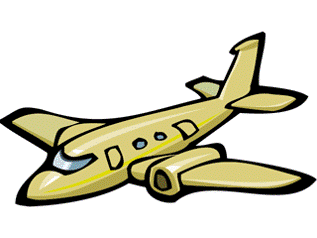
This page has a vocabulary list with definitions of lots of words about taking a trip. You should try to learn as many of them as possible so you will be able to use them in conversations or understand them when other people speak. After the vocabulary list there is a set of flashcards with all the vocabulary items that you can download and use anywhere to learn the words. Then the words in the ESL taking a trip vocabulary list have been included as recordings of a native English speaker pronouncing the words.
After all of that there are then three exercises for you to do that will test your understanding of some of the ESL taking a trip vocabulary. The exercise are as follows:
- Identification of the definition of a word.
- Identification of the word that matches a definition.
- Identification of word that matches a picture.
ESL Taking a Trip Vocabulary List with Definitions
This section has the ESL taking a trip vocabulary list so you can learn all the words and their simple definitions, or you can just use it as a reference source. If you want to learn the items offline you can down load the flashcards that follow it. Then finally there are a couple of recordings of the ESL taking a trip vocabulary list being spoken by a native English speaker.
Aircraft: A vehicle that can fly. (noun)
Airfare: The money paid to travel by airplane. (noun)
Airline: A company that provides scheduled flights for carrying passengers to different places. (noun)
Airport: A place where airplanes land and take off and which is equipped with terminal buildings and hangars. (noun)
Airplane: A vehicle that has a fixed wing and is powered by propeller or jets. (noun)
Aisle: A long narrow passage between seating areas in a passenger vehicle. (noun)
Arrivals area: The area of an airport where incoming passengers arrive. (noun)
Baggage: The bags or cases used to carry belongings when traveling. (noun)
Baggage claim: An area in an airport where arriving passengers collect their baggage. (noun)
Board: To get onto trains, buses, ships, etc. (verb)
Boarding pass: A card that allows you to board a ship or plane. (noun)
Cab: A car driven by a person whose job is to take passengers where they want to go in exchange for money (same as taxi) (American English). (noun)
Cabin: 1) A room on a ship where passengers can sleep. 2) A space in an airplane where passengers sit. (noun)
Check-in: To announce your arrival at a hotel or airport. (verb)
Connecting train/flight: A different train/flight taken from a station/airport other than that from which the journey started. (noun)
Cottage: A small house in the country. (noun)
Cruise: An ocean trip taken for pleasure. (noun)
Cruise ship: A passenger ship used commercially for pleasure cruises. (noun)
Currency: The money that is used as a medium of exchange in a particular country. (noun)
Customs: The procedure for examining baggage and freight, paying duty, etc. (noun)
Depart: To move away from a place into another direction. (verb)
Departure: The act of departing. (noun)
Departure board: A board in an airport, bus terminal, or train station which displays the times and destinations of future departures. (noun)
Departure lounge: A lounge in an airport where passengers can wait before the departure of their flight. (noun)
Destination: A place where you end your journey. (noun)
Domestic flight: A flight that begins and ends in the same country. (noun)
Duty-free: Goods that you can bring into a country without paying tax on them. (noun)
Embark: To get onto a ship or airplane. (verb)
Excursion: A short journey taken for pleasure, usually by a group of people. (noun)
Excess baggage: Baggage that weighs more than the maximum amount each passenger is allowed to carry without paying extra fees. (noun)
Fare: The money paid to use public transport, such as bus, plane, taxi, etc. (noun)
Flight: A journey made by air transport, especially by plane. (noun)
Flight attendant: A person whose job is to serve and take care of passengers in a plane. (noun)
Foreign: In or from a country that is not your own. (adjective)
Foreigner: A person who comes from a different country or who does not belong in a particular place. (noun)
Gate: A way out of an airport terminal through which passengers go to get on their plane. (noun)
Getaway: (1) A short holiday or vacation. (noun) (2) A place that is suitable for a holiday or vacation. (noun)
Guide: A person who shows tourists around interesting places. (noun)
Guided tour: An activity of walking around a town, building, etc. accompanied by a guide. (noun)
Hand luggage: The small bags that passengers can carry into an airplane. (noun)
Holiday: A period when a break is taken from work or studies for rest, travel, or recreation. (noun)
Hostel: A building that provides cheap accommodation and meals to travelers. (noun)
Hotel: A building where people pay to stay and eat meals. (noun)
Immigration officer: A person who examines the passports, visas, etc. of foreign nationals entering a country at an airport, port, etc. (noun)
Inn: A small hotel, usually in the country side. (noun)
Itinerary: A plan or list of places to be visited on a journey, including the route. (noun)
Jet lag: The feeling of being tired and slightly confused after flying a very long distance because of a time difference between the places left and arrived. (noun)
Journey: An act of travelling from one place to another, especially over a long distance. (noun)
Keepsake: A small object or gift that reminds you of a person or an event. (noun)
Knapsack: A bag that you carry on your shoulders. (noun)
Landing: The action of bringing an aircraft down to the ground after being in the air. (noun)
Leisure time: When you are not working or studying and can relax or do things you enjoy. (noun)
Lodge: To pay to live in a room in someone’s house. (noun)
Lodging: A place to stay. (noun)
Luggage label: A piece of paper attached to luggage that gives information about it. (noun)
Luggage: Bags or cases that you carry when you are travelling. (noun)
Map: A drawing of a particular area, such as city or country, which shows its roads, rivers, mountains, etc. (noun)
Motel: A hotel for people who are travelling by car, where they can park a car outside their room. (noun)
Off-peak: A time when less people take trips and tickets are usually cheaper. (adjective)
Ocean liner: A passenger ship that travels on the ocean. (noun)
Overnight bag: A bag for holding clothes and other necessities when staying away from home for one night or a short period of time. (noun)
Pack: To put things into bags, cases, etc. in preparation for a trip somewhere. (verb)
Passage: A journey on a ship. (noun)
Passport: An official document that you get from your government that identifies who you are, and which you need to use to leave your country and enter other countries. (noun)
Peak time: A time when the greatest number of people are travelling. (noun)
Platform: The raised area beside a railway track where you get on and off a train in a station. (noun)
Port: A place where ships load and unload goods. (noun)
Return: A ticket for a trip to a place and back again. (noun)
Resort: A place where a lot of people go for holidays. (noun)
Safari: A trip to seen or hunt wild animals. (noun)
Sail: To travel across an area of water in a boat or ship. (verb)
Scenery: The natural features of a beautiful landscape. (noun)
Shore: The land along the edge of a large area of water such as an ocean or lake. (noun)
Shuttle: A plane, bus, or train that makes regular short journeys between two places. (noun)
Single: A ticket for a one-way trip to a place. (noun)
Sights: Anything worth seeing, such as attractions, events, etc. (noun)
Sightseeing: The activity of visiting the famous or interesting sights of a place. (noun)
Ski lodge: A small hotel where skiers may stay on a skiing trip. (noun)
Souvenir: An object that you buy or keep that reminds you of a special occasion or a place you have visited. (noun)
Stopover: A temporary stop for a day or two during a long trip. (noun)
Suitcase: A large case with a handle, used for carrying clothes and belongings when travelling. (noun)
Take-off: The time when a plane leaves the ground and begins to fly. (noun)
Taxi: A car with a driver that you pay to take you somewhere (same as cab) (British English). (noun)
Taxi rank: A place where taxis wait for customers. (noun)
Terminal: A large building at an airport where passengers arrive and leave. (noun)
Ticket: A small piece of printed paper which shows that you have paid to travel on a bus, plane, train, etc. (noun)
Tour: 1) A journey for pleasure, during which you visit places of interest along the route. (noun) 2) A short trip through a place to see it. (noun)
Tourist: 1) A person who travels for pleasure. (noun) 2) A person on a sightseeing tour. (noun)
Tourist trap: A place that many tourists visit, but where accommodation and meals are more expensive. (noun)
Train: A line of carriages pulled along a railway by a locomotive. (noun)
Tram: A passenger vehicle powered by electricity that runs on rails along the streets. (noun)
Transit system: The public transport which allows people to travel from one place to another. (noun)
Tramway: The tracks that form the route of a tram. (noun)
Travel: To move from one place to another using a vehicle, usually over a long distance. (verb)
Trip: A journey to visit a place for a particular purpose. (noun)
Unpack: To remove things from of a suitcase, bag, box, etc. (verb)
Vacation: Leisure time away from work or studies in order to rest or for pleasure. (noun)
Visa: A stamp or an official mark put on your passport that gives you permission to enter or leave a foreign country. (noun)
Voyage: A long journey to some distant place in a ship. (noun)
Wander: A short relaxed walk around a place. (noun)
Yacht: A large sailing boat with a place to sleep on board that is used for pleasure trips. (noun)
Vocabulary Flashcards for Taking a Trip Words
The following ESL taking a trip vocabulary flashcards can be downloaded as a pdf document by either clicking the picture or link that follows it. You can then use then whenever you are not at your computer.
Taking a trip vocabulary flashcards
Spoken Taking a Trip Vocabulary
This section has two recordings of the ESL taking a trip vocabulary. The first is just a simple recording that you can listen to, while the second is a video that shows the flashcards at the same time as the vocabulary is spoken by a native English speaker. This will help you learn the correct pronunciation for the ESL taking a trip vocabulary.
ESL Taking a Trip Vocabulary Exercises
Exercise 1 – Correct Definition
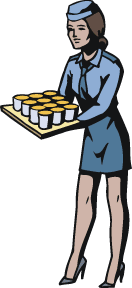
For the first ESL taking a trip vocabulary exercise you need to decide which option (A-D) has the definition that matches the word given in each question. When you have finished you can use the get score button to see how many you got correct.
ESL Taking a Trip Vocabulary Definitions
Choose the correct definition for the taking a trip vocabulary in this quiz.
Exercise 2 – Correct Meaning
In the second ESL taking a trip vocabulary exercise you need to match the definition given in each question with the correct word (options A-D). Again you can use the get score button to see the correct answers when you have finished.
ESL Taking a Trip Vocabulary Identification of Meaning
Choose the word that matches the definition given in each of the five questions in this quiz.
Exercise 3 – Identify Picture
For the third ESL taking a trip vocabulary exercise you need to decide which word (options A-D) in each question corresponds to the pictures given below. Then at the end you can again use the get score button to see how many you got right and the correct answers.
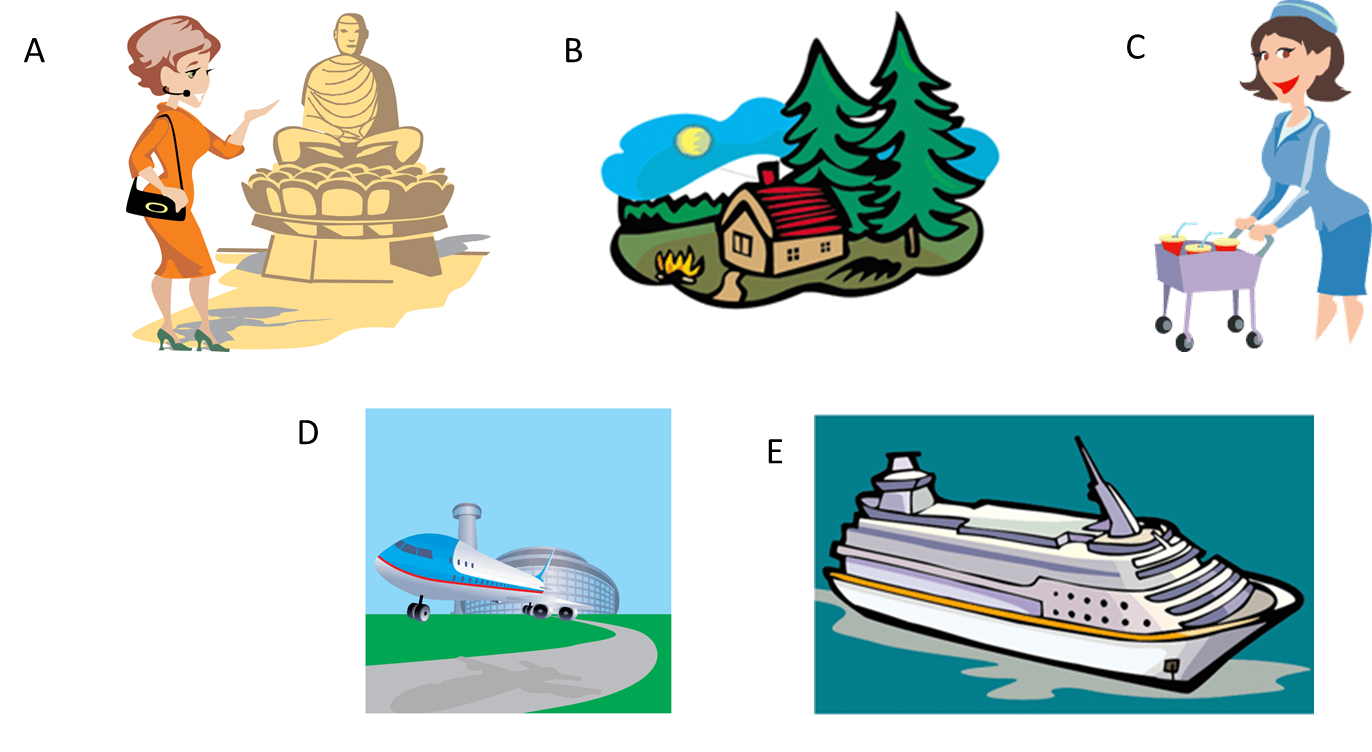
ESL Taking a Trip Vocabulary Picture Descriptions
Identify the best description for each of the images (A-E) given above that correspond to the five questions in this quiz.
Other Pages about Taking a Trip that You Might
Like
ESL Taking a Trip Conversations
ESL Taking a Trip Listening
ESL Taking a Trip Reading
ESL Taking a Trip Writing
ESL 4u home › Vocabulary › Taking a Trip


|
|
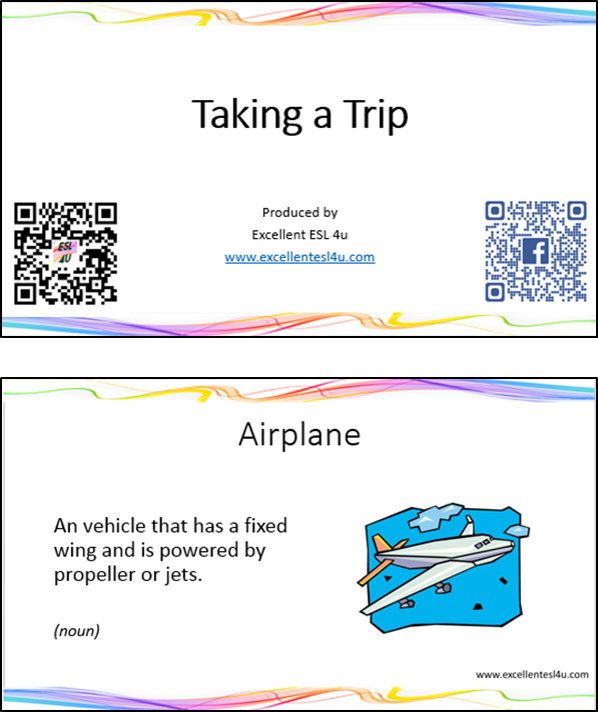

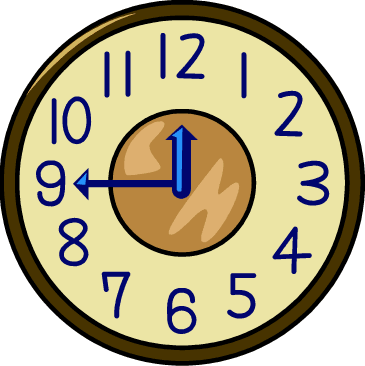

New! Comments
Have your say about what you just read! Leave me a comment in the box below.